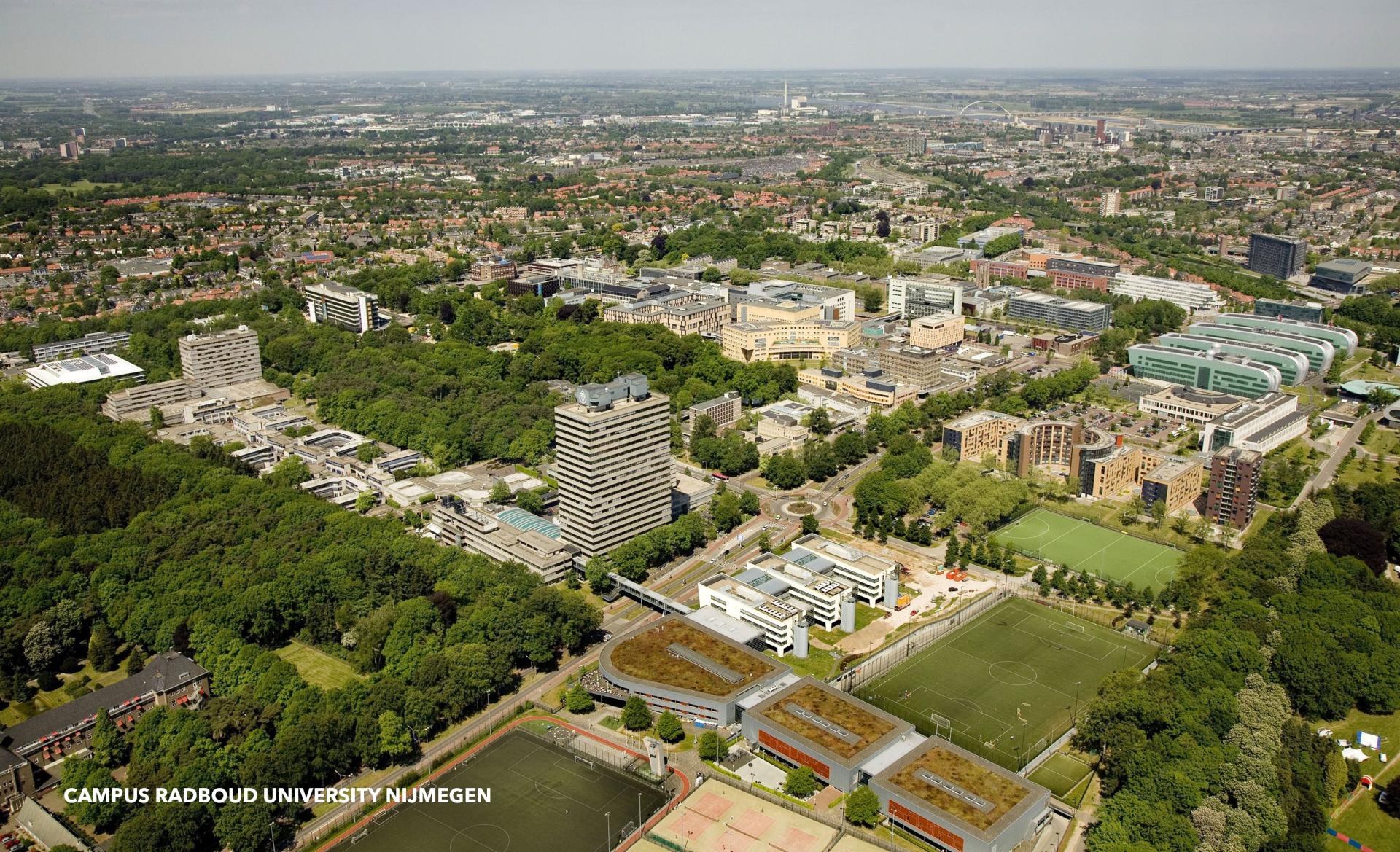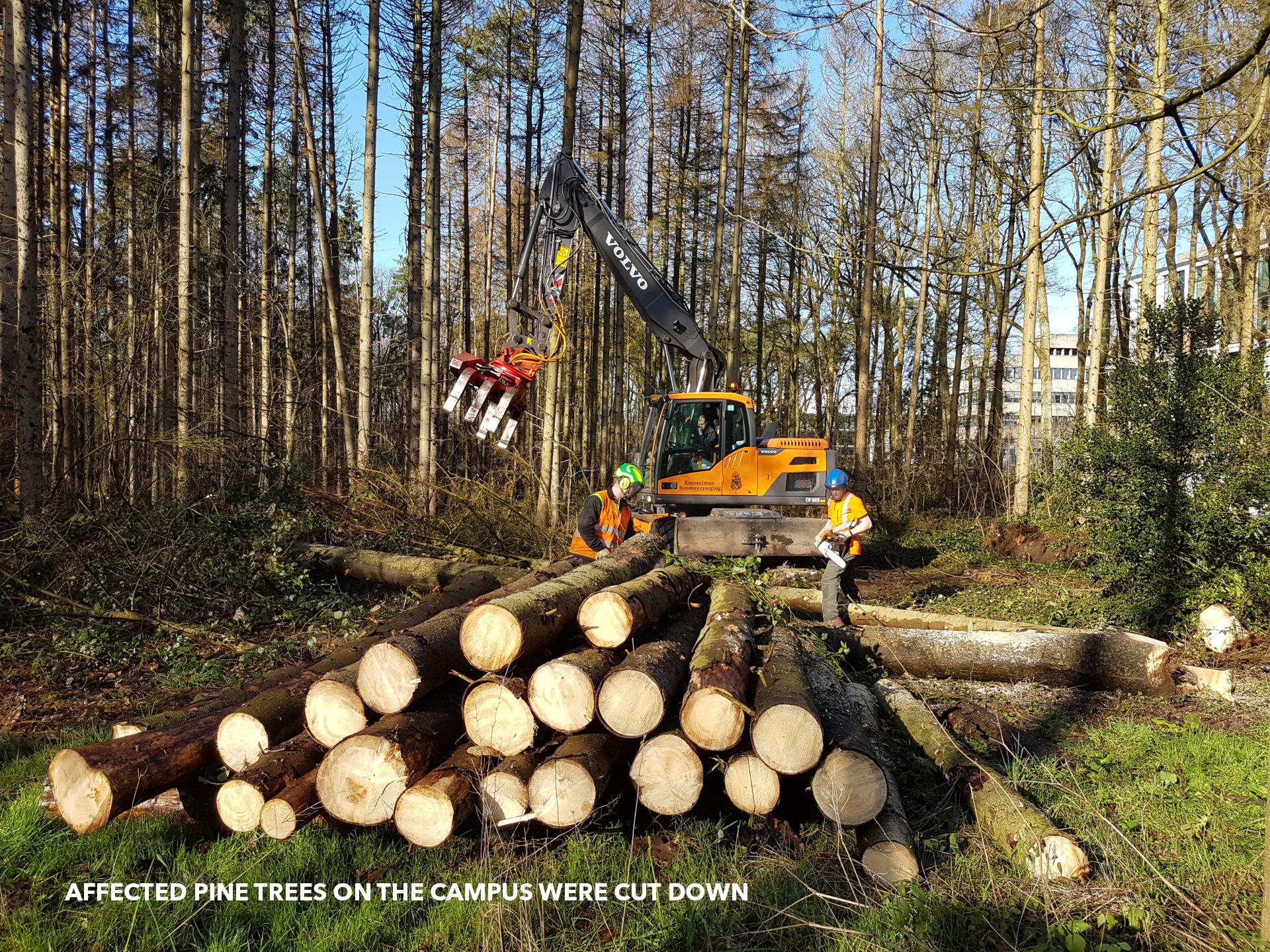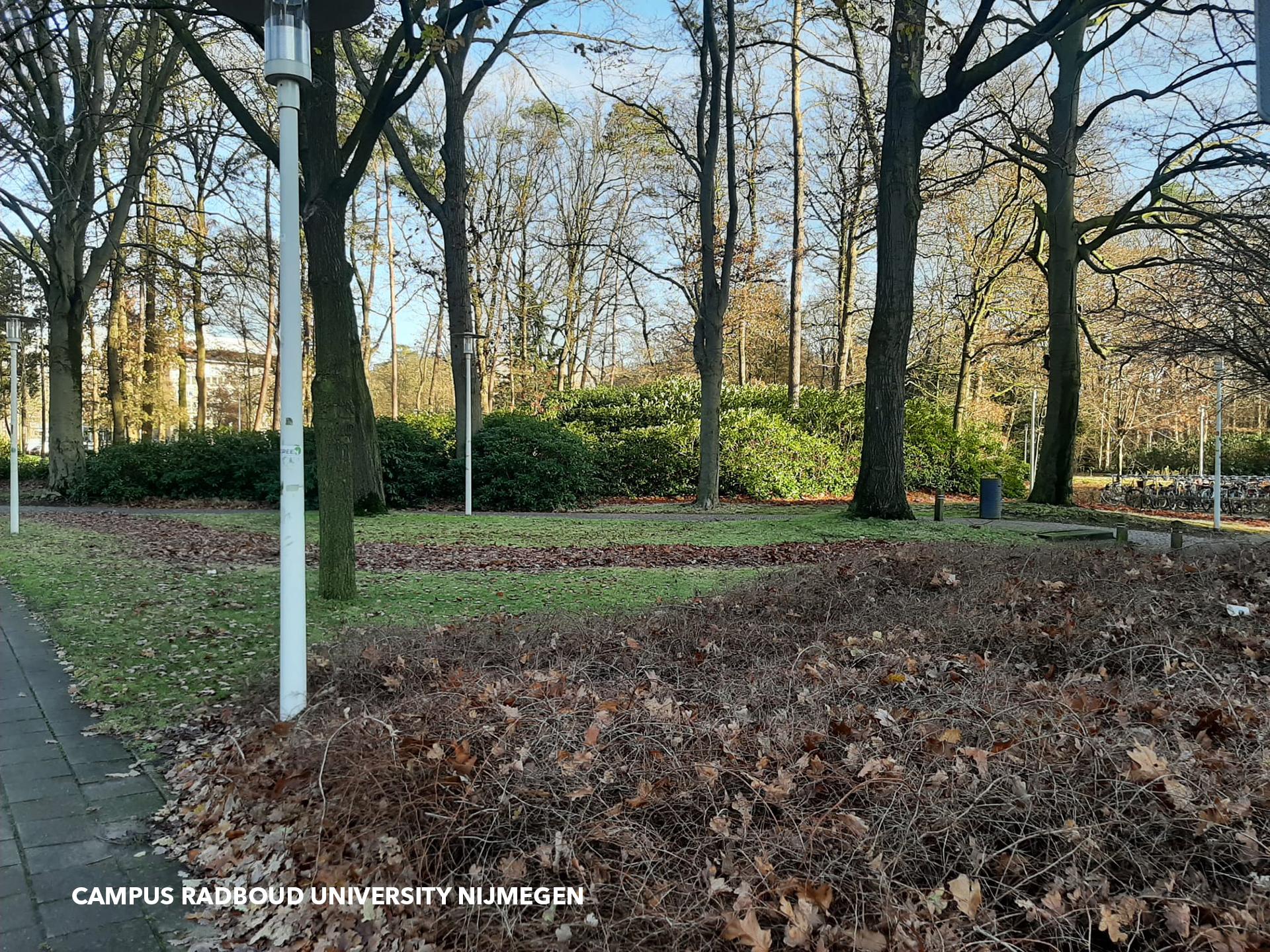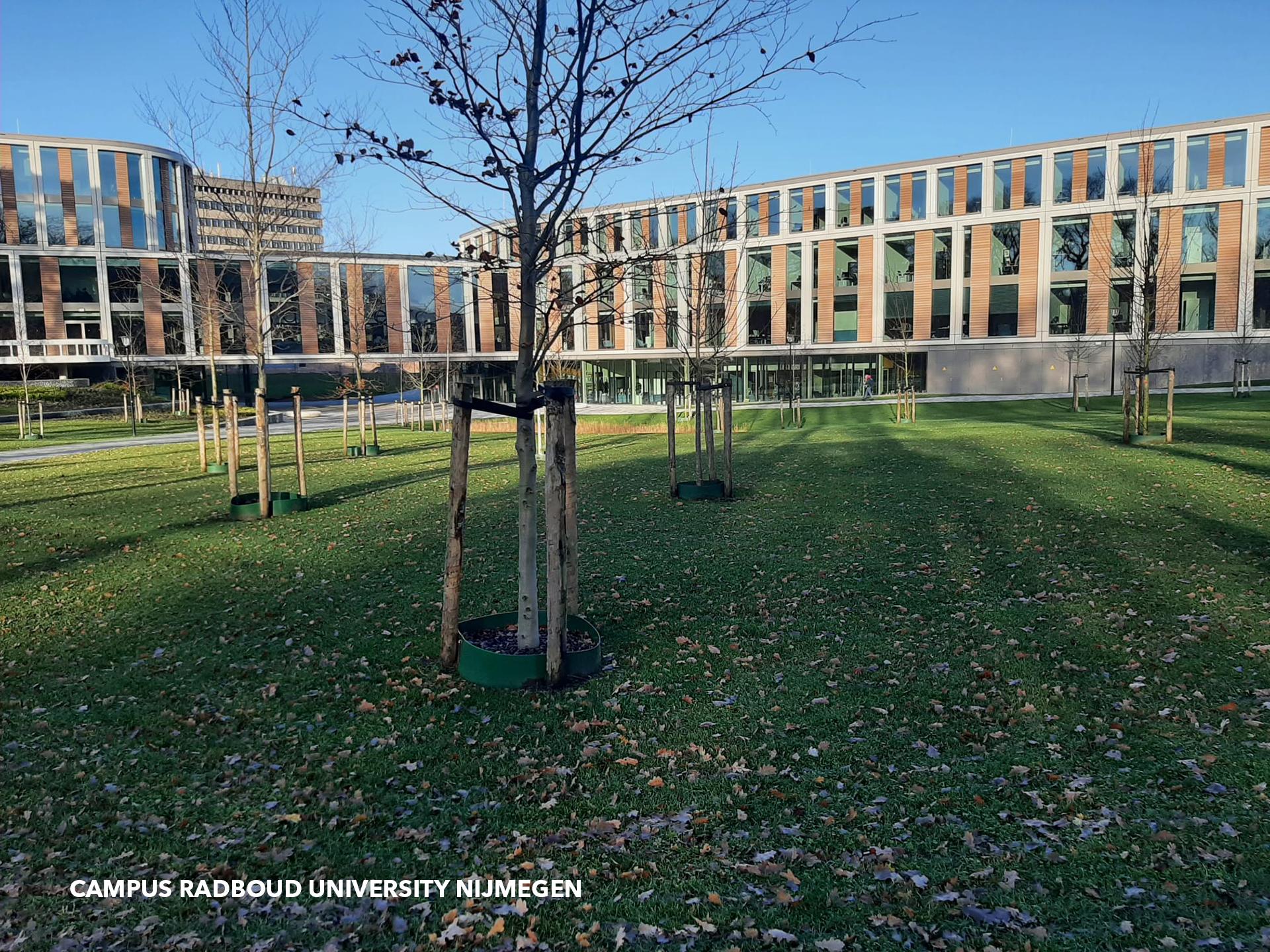Circular Campus Transition
Basic information
Project Title
Full project title
Category
Project Description
On the campus of the Radboud University Nijmegen a large amount of pine tree logs await reuse. The trees were cut down because they were affected by a beetle. The university asked AIR3+ to come up with a circular plan for the wood. The company asked two students from HAN University of Applied Sciences to develop a suitable circular business plan. The plan is to upcycle the wood to sustainable outdoor furniture on the campus, and thereby create additional natural, economic and social value.
Geographical Scope
Project Region
Urban or rural issues
Physical or other transformations
EU Programme or fund
Which funds
Description of the project
Summary
On the terrain of the campus of the Radboud University Nijmegen in the Netherlands a large amount of stacked pine tree logs await reuse. The trees were cut down some time ago because they were affected by a beetle, called the Ips typographus. The university asked among others the company AIR3+ to come up with a circular plan for the use of the wood. The company asked two students Circular Economy from HAN University of Applied Sciences to do research and develop a suitable business plan. From the perspective of the campus as an ecosystem the students looked into various possibilities of reusing the wood on the campus in a sustainable, circular way. Jaap Jesse Oosterwijk and Dirk Matthijs Meijberg also performed a stake holder research, and subsequently developed a business case for AIR3+.
Research showed that the best sustainable and economic way to reuse the wood was to upcycle it, and turn the logs into picnic tables, park benches, secluded seats, or plant containers. To prevent untimely biodegradation of the timber relative nature friendly preservation techniques, like hydro thermolysis, are advised. In this way the wood may afterwards even be reused again in the ecosystem because it is not polluted. By upcycling the logs into outdoor furniture multiple value is created. Not only the natural capital of the wood is enhanced, but the outdoor seats also stimulate social contact, contact with nature and people’s health. Furthermore the plant containers also contribute to biodiversity. And last but not least, economic value is created because the proposals are part of a viable business case AIR3+ will adopt for the real execution of the plan.
Key objectives for sustainability
The key objective of the plan concerning environmental sustainability is to reuse pine wood logs, which are piled up on the campus terrain of the Radboud University Nijmegen in a circular way, and to upcycle them to street furniture in a sustainable manner. Besides preserving the natural capital of the wood, the project is aimed at adding multiple value in the field of biodiversity, health, social cohesion, and financial capital.
In this respect the idea is exemplary, because not only circular and sustainable use of material is demonstrated, but simultaneously other important values are added, which will benefit the ecosystem of the campus and the people who work and stay there. Achieving multiple goals with sustainable projects is an important objective to show people all the benefits of sustainability and get their support. It is also important to demonstrate that thinking in terms of ecosystems means that a holistic view and a multidisciplinary approach, which ensures the creation of multiple value, is the best way to achieve integrated, long lasting results. This is a lesson to be learned, and this is exactly what this project does.
Key objectives for aesthetics and quality
The circular upcycling of pine wood logs into outdoor furniture is not just a matter of designing functional use and preventing the untimely biodegradation of the timber. Part of the plan is also that AIR3+ makes an attractive design of the outdoor furniture. It is important that people like to sit there, relax in a beautiful, healthy natural environment, and find the campus terrain inspiring and agreeable to be in. For this reason the design and aesthetics of the seats play an important role. The design should invite people to make use of the furniture, and should show them the beauty of pure, raw materials and the aesthetics of sustainability, and thereby its purpose and worth. The furniture also supports life-cycle thinking in an active way. On a plaque a QR code is engraved, which gives all the information about the circular origin of the furniture.
Key objectives for inclusion
The transformation of pine wood logs into outdoor furniture on the university campus is very inclusive, since everybody may use the furniture and it is free of charge. No matter if people are students or staff, or if they are visitors, or passers-by, anyone can enjoy a stay on the furniture since the campus is an open, public area. Furthermore the designs and location of the furniture will be determined in co-creation with all the stakeholders on the campus. In this way it is almost a guaranteed success.
Physical or other transformations
Innovative character
In this project environmental sustainability, aesthetics, quality of experience, and social inclusion are intertwined because of the chosen holistic ecosystem approach. The transformation of pine wood logs into outdoor furniture is aimed at the creation of multiple value. It not only preserves and upgrades the natural capital of the pine wood by upcycling it to outdoor furniture, but also adds a social function to the raw material. It creates a possibility for people to meet, eat and speak with each other, without excluding anybody. By means of natural, organic design people will enjoy the presence and functionality of the furniture on the campus. The wooden design will make them feel part of the natural environment, so the outdoor furniture is also good for their health. It stimulates walking and people will get fresh air while sitting, eating and working there. So sustainability, inclusiveness, aesthetics and quality of experience all merge together in this project.




